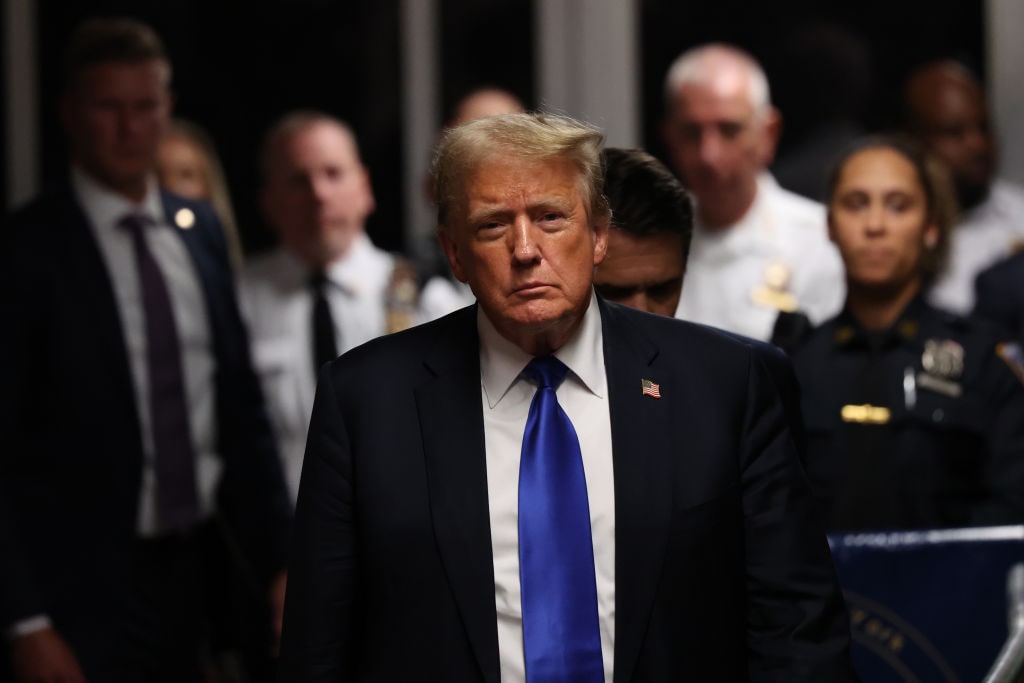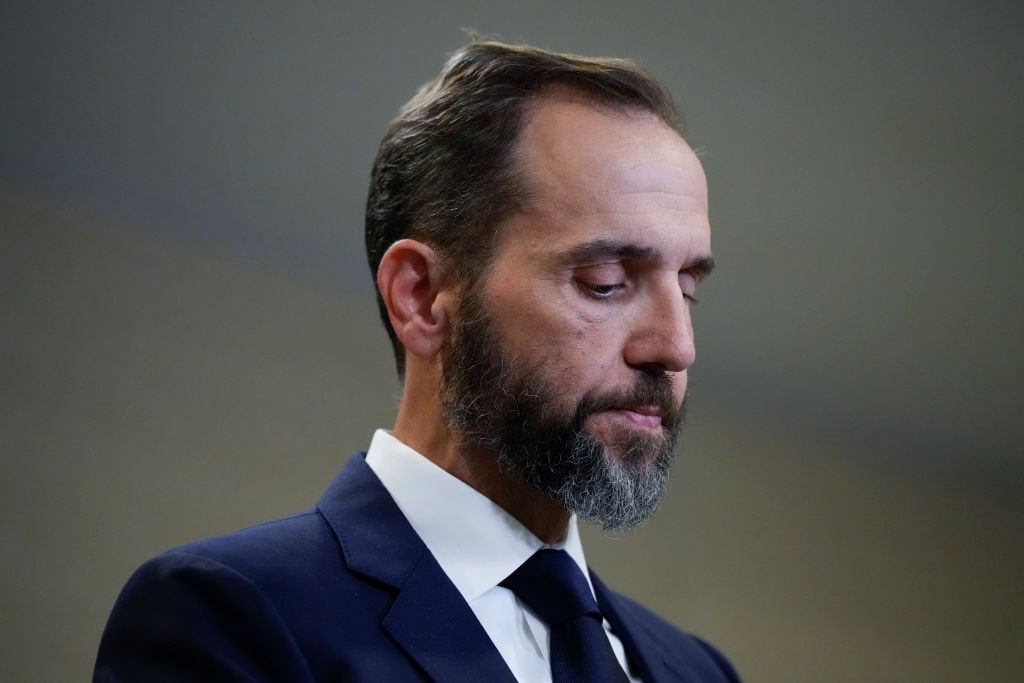Judge Tanya Chutkan, of the US District Court for Washington DC, has unsealed the latest filing by special counsel Jack Smith. The document relates to Smith’s efforts to prosecute former President Donald Trump over his actions related to January 6, 2020. Coming just a month out from the presidential election, her decision to publicly release the details on Wednesday, October 2, was panned by Trump as “election interference.”
After the Supreme Court ruled that presidents enjoy a level of immunity for official actions, Smith was forced to go back to the drawing board with his prosecution. In September, he refiled a 165-page indictment. Judge Chutkan dismissed claims that the timeline would be prejudicial, saying, “The electoral process and the timing of the election … is not relevant here. … This court is not concerned with the electoral schedule.”
The key takeaway from the filing, Smith wrote, was that “At its core, the defendant’s scheme was a private one. He extensively used private actors and his campaign infrastructure to attempt to overturn the election results and operated in a private capacity as a candidate for office.”
Trump took to social media to make his feelings known. His ire was not directed at the judge, however. He instead excoriated Jack Smith and the Department of Justice:
“FOR 60 DAYS PRIOR TO AN ELECTION, THE DEPARTMENT OF INJUSTICE IS SUPPOSED TO DO ABSOLUTELY NOTHING THAT WOULD TAINT OR INTERFERE WITH A CASE. THEY DISOBEYED THEIR OWN RULE IN FAVOR OF COMPLETE AND TOTAL ELECTION INTERFERENCE. I DID NOTHING WRONG, THEY DID! THE CASE IS A SCAM, JUST LIKE ALL OF THE OTHERS, INCLUDING THE DOCUMENTS CASE, WHICH WAS DISMISSED!”
It seems the former president is keen to derail the prosecution in the court of public opinion before it ever makes it to trial.
A Political Predicament
Two key issues remain for Jack Smith. First, he must prove that then-President Donald Trump was operating in a purely personal capacity in every action he took. Any statements, calls, or processes that Trump engaged in that can reasonably be deemed within the course of his duty as the commander-in-chief are – as the Supreme Court ruled – to be viewed through the lens of immunity.
 The second issue is that Smith’s efforts could be null and void by November 6 (or by January 20 at the latest). The decision to prosecute is always a political one. Should Trump regain office, it is almost certain that he will order the Department of Justice to drop the case entirely. A cascading effect here is that should Trump win the White House and Democrats take the House, Smith’s groundwork will likely be used as the basis for a third impeachment effort. If he has, as the 45th president suggests, rushed his filing in order to weaken the Republican nominee’s chances of re-election, any weakness in his case will be exposed and could cause lasting reputational damage to the department he represents.
The second issue is that Smith’s efforts could be null and void by November 6 (or by January 20 at the latest). The decision to prosecute is always a political one. Should Trump regain office, it is almost certain that he will order the Department of Justice to drop the case entirely. A cascading effect here is that should Trump win the White House and Democrats take the House, Smith’s groundwork will likely be used as the basis for a third impeachment effort. If he has, as the 45th president suggests, rushed his filing in order to weaken the Republican nominee’s chances of re-election, any weakness in his case will be exposed and could cause lasting reputational damage to the department he represents.
But how strong or weak is his new filing?
A PT Barnum Gambit?
Constitutional scholar Jonathan Turley detailed the Hail Mary efforts of the special counsel:
“He is trying to thread the needle in this filing to get around the Supreme Court immunity decision. Notably, Smith removed evidence from the new indictment but kept the same claims, including conduct that seems to fall within protected areas.”
So, does this mean that the new filing is weaker sauce than the original? “What Smith was not willing to do is actually reduce the underlying claims. The new case is to indictments what shrinkflation is to products — same package just less content,” Turley wrote. Or perhaps, as PT Barnum once noted, “Advertising is to a genuine article what manure is to land, – it largely increases the product.”

(Photo by Michael M. Santiago/Getty Images)
“Smith knows that he has a motivated and supportive judge and wants to simply prove the same basic claims on less evidence,” Turley concluded.
However, even if Mr. Smith were given the benefit of the doubt regarding Trump’s claims that the timing of the filing is meant to interfere with the upcoming election, another horological Sword of Damocles hangs over the special counsel’s head.
Who’s On First?
When the Supreme Court ruled, in Trump v. United States, that presidents enjoy a level of immunity while exercising their official duties, Justice Clarence Thomas felt it necessary to make a specific point regarding who can actually be appointed as a special counsel. He declared in a concurring opinion:
“I write separately to highlight another way in which this prosecution may violate our constitutional structure. In this case, the Attorney General purported to appoint a private citizen as Special Counsel to prosecute a former President on behalf of the United States.
“If there is no law establishing the office that the Special Counsel occupies, then he cannot proceed with this prosecution. A private citizen cannot criminally prosecute anyone, let alone a former President.”
This writing was prompted by the decision of Federal Judge Aileen Cannon, who, in July this year, dismissed Smith’s other case against Donald Trump regarding the mishandling of classified documents. While that verdict explicitly restricted itself to the Florida charges, Trump lawyers will likely use the ruling to push for a Supreme Court hearing. Liberty Nation News Legal Affairs Editor Scott D. Cosenza explained at the time:
“The Appointments Clause, found in Article 2, Section 2 of the Constitution, gives Congress great authority over who is appointed to exercise powers granted to the Executive branch. Here, to prosecute federal charges, one must be an ‘officer of the United States,’ and those must be appointed with consent from the US Senate, as US Attorney positions and the Attorney General are, for instance. If not, then the appointment must be supported by some other law passed by Congress.”
The Supreme Court will be back in session this coming Monday, October 7. There is little doubt that a challenge to Smith’s position is waiting to wind its way through the DC court circuit, and from there, perhaps back to the highest Court.
Impact Baked-In?
Donald Trump claims that both the prosecution itself and the timing of the filings (and unsealing) are motivated to do him damage just weeks before the November 5 election. While it is true that the DOJ does not usually take action on politically sensitive cases within two months of an election, it is a common practice rather than a rule. However, if the past is prologue, Mr. Trump may not have too much to worry about on this side of Election Day.
Each time he has been taken to court or ruled against in court, his poll numbers have not suffered. In fact, there’s a good case to be made that each successive action by state and federal prosecutors has actually strengthened his position, presumably because a significant portion of the public believes the charges against him are politically motivated.
Kamala Harris has tried to paint herself as the underdog in this election – despite being the sitting vice president. This position was already a hard sell, but with the media again focusing on the numerous charges against the former president, it becomes an almost unbelievable assertion. That the charges were coming back was never in doubt – that they might not actually make a difference come November could prove to be a decisive factor in the public perception battle.
Dig Deeper into the Themes Discussed in this Article!
Liberty Vault: Trump v. United States




